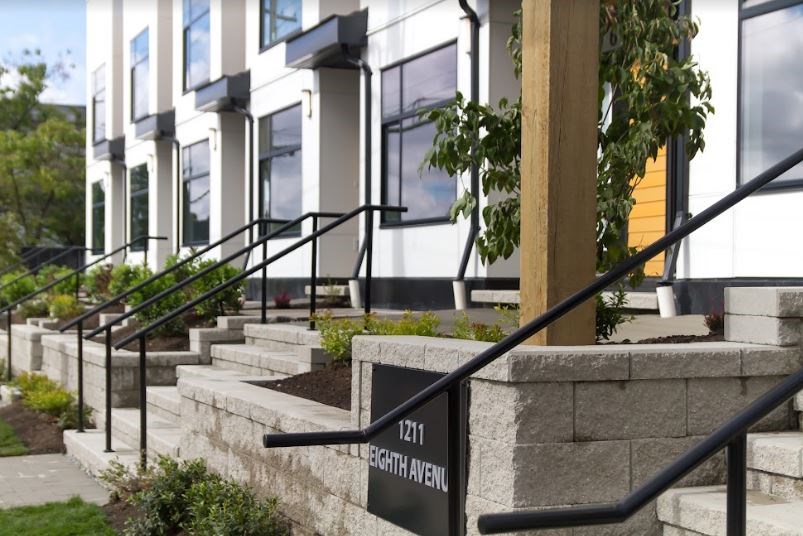Yes in New West is joining with other housing advocacy groups in asking Premier David Eby to take action to address the housing crisis.
The New Westminster group has joined with Homes for Living YYJ, Abundant Housing Vancouver, Kitsilano for Inclusivity and Deltans for People Oriented Places in urging the province to recognize that the scale of the problem requires an “ambitious” response. In a letter to Eby, the groups said they applaud his housing platform, which indicates he’s prepared to act quickly to alleviate the housing crisis.
“We urge you to be bold,” said the letter. “Our housing shortage is the result of decades of under-production of housing. British Columbia needs real reform to the municipal systems that produced the crisis. The failure of municipalities to build enough homes spills over in the form of worsening affordability to neighbouring municipalities, their region and the province as a whole. While we strongly encourage municipalities to make reforms, provincial action is required to address the provincewide nature of the crisis. Solving it will generate provincewide benefits.”
Yes in New West, a coalition of New Westminster residents who advocate for housing, formed in 2016 when the City of New Westminster was updating the city’s official community plan (OCP). It encouraged council to expand housing options in neighbourhoods across the city by allowing more row houses, townhouses and carriage and laneway houses.
In the years since council adopted the OCP, the group has continue to advocate for a variety of housing initiatives. Last year, many Yes in New West members urged council to support the Aboriginal Land Trust’s plan to build a six-storey, 96-unit affordable housing building at 823 to 841 Sixth St.
In a Nov. 16 letter to Eby, the housing advocacy groups called for changes to minimum zoning standards, noting that New Zealand enacted national reforms that established minimum zoning standards and legalized multifamily housing.
“Legalizing three homes per lot will be helpful in many of B.C.s smaller municipalities, but that is already the status quo in Vancouver and has proven inadequate. Further, Vancouver’s Streamlining Rental Policy has demonstrated that four-floor rental apartments are not economically viable in low-density zones,” said the letter. To make an impact, your government needs to be more ambitious. Six-plexes should be legalized across B.C. with at least six-floor buildings allowed in major urban areas near frequent transit (including Greater Vancouver, Greater Victoria, Abbotsford, Nanaimo and Kelowna). Additional density bonuses should be available for buildings with below-market homes.”
The housing advocates also say the scale of the housing problem requires a response that includes student housing and low-income housing. They also want action taken to limit sprawl.
“There is plenty of room within our cities for more housing,” states the letter. “The province’s housing plan must encourage infill housing, legalize low-and mid-rise apartments and mixed-use buildings, and disincentivize greenfield development.”
The groups are also asking the province to support a robust assessment of housing targets.
“Any plan that does not result in dramatic increases in actual housing production is a failure,” said the letter. “Housing production must be monitored, with deeper reforms ready if existing measures lead to insufficient outcomes. Housing need must be assessed using real-world indicia, including rental vacancy rates, housing/job imbalances and quantity of cost-burdened households. Current projects and needs assessments that implicitly accept past trends of household displacement are inadequate for determining new housing targets.”
The housing advocates state that British Columbia is experiencing a severe housing crisis, including an acute shortage of housing. They noted that the Canada Mortgage and Housing Corporation estimates a current shortage of more than 400,000 homes.
“This causes ripples across our housing system, contributing to unaffordability, housing precariousness and homelessness. Housing scarcity in our urban areas also forces British Columbians into sprawl, causing long commutes that increase emissions and decrease overall quality of life,” said the letter. “Worryingly, the housing deficit is growing deeper: by 2030 the shortfall is expected to increase to 570,000 homes. Despite this and other warning signs, municipal governments have failed to act. New housing, including public and non-profit housing, is burdened by unnecessarily complex and expensive approval processes. Across much of British Columbia’s urban land, municipalities simply make new housing illegal.”
Eby, who was sworn in as British Columbia’s new premier on Nov. 18, released a housing platform as part of his campaign for the NDP leadership, which came about after John Horgan announced he would be stepping down as premier.
Eby has said that changes need to be made to address the housing emergency. He’s expressed support for a number of initiatives, including: providing provincial funding to non-profits that are ready to immediately build projects in high-need communities; increasing the Indigenous Housing Fund to support housing for Indigenous people on and off reserves; using public lands to build housing; and partnering with First Nation and city governments, non-profit and private partners, to offer rapid approvals, increased density, land and construction financing.
Eby has also indicated he’s supportive of removing strata restrictions on rentals, legalizing secondary suites and adding density to urban centers by allowing a single-family home to be replaced with up to three units. His housing plan also includes a “flipping tax” on sales of residential properties sold within two years and initiatives to secure rental housing for the long-term.



